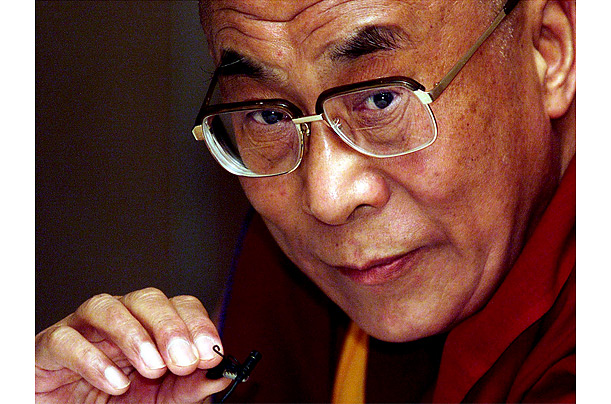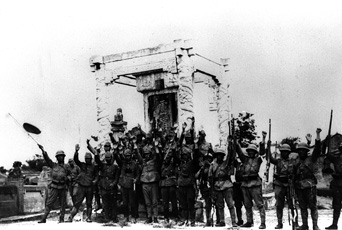What on earth is the world coming to? We now live in a time of war, and rumors of war, and the rumors just keep coming! A recent article in the magazine Foreign Policy actually postulates what may occur if China and Japan were to fight a naval war over the disputed Diaoyu/Senkaku Islands. Back when we lived through the Cold War, in a bipolar world, (that means that there were two main superpowers in the world), and most conflicts in the world revolved around the Soviet-American rivalry, the basic calculus was simple: The two superpowers would keep their allies and satellites in check, and, barring some extraordinarily crazy sparking event, the chances of an actual war between the superpowers would likely not happen due to the threat of mutually assured nuclear destruction. That also meant that if America’s ally Israel got the upper hand over Soviet-allied Egypt and Syria in the latest Middle Eastern War, the Americans would rein in the Israelis before they could march on Cairo or Damascus and trigger possible Soviet intervention. Similarly, it was fairly certain that the Soviets would convince Syria to not use its stockpile of chemical weapons on Israel for similar fear of an American intervention. In many ways, the Cold War rivalry between the U.S. and the Soviet Union kept a lid on many possible conflicts that could have sparked a bigger war.
Well, the Soviet Union is gone now, and we are faced with a multi-polar world. Make no mistake, the U.S. is still the only legitimate superpower around. The U.S. can project power literally anywhere in the world with a high degree of certainty of tactical victory. For example, on a month’s notice in 2001, American and allied forces launched an invasion/liberation of Afghanistan (literally on the other side of the planet from the U.S.), following the 9/11 terrorist attacks. But other, regional powers are flexing their muscles and making threatening noises, and this will continue to be a reality as those regional powers (such as China, Iran, Saudi Arabia, Turkey, Israel, Japan, Russia, India, and others), come into conflict with their neighbors. Notice that several of the nations named above are neighbors with each other, or at least inhabit the same neighborhood.
In August of 2012, a look at the current wars, border conflicts, and potential international problems that are currently being discussed, and reported on in the news:
–Israel is openly debating whether or not to attack Iran. The Iranians, for their part, continue to develop their controversial nuclear program, while simultaneously we hear their leaders call for the destruction of Israel.
–The United States continues to place increased military forces in the regions surrounding Iran, just in case there is an Israeli-Iranian War. If such a war breaks out, the U.S. will almost certainly be drawn in.
–The ongoing Syrian Civil War is getting bloodier, and the Assad regime may be getting more desperate. Speculation has arisen over the possibility of Assad using his stockpile of chemical weapons on either the rebels or on the nations that support them, namely Turkey and Jordan. Of course, Assad could also just use them on Israel, hoping to gain traction with his own people or with other Arab nations. All of the above-named anti-Assad nations are friends of the U.S., which has made no bones about intervening if Assad were to use his weapons of mass destruction.
–Israel is openly preparing for a possible intervention of their own in Syria if they believe that Assad is going to transfer his chemical weapons to his Hezbollah allies in Lebanon.
–Egypt is engaged in a low-level but growing battle to re-assert authority in the Sinai, where Islamic militants are launching more frequent and more deadly attacks on Egyptian, Israeli, and American forces. (The Americans are in the Sinai as part of the Multinational Force & Observers, which has helped keep the peace between Egypt and Israel since the Camp David Accords).
-China, Vietnam, the Philippines, and other Southeast Asian nations are engaged in name-calling and posturing over the contested Spratly Islands. China has increasingly asserted authority on the islands, even to the point of setting up a small city on one of them. The military forces of several nations are in the area. The main reason for this conflict is the belief that the area is rich in oil and natural gas. The United States is a close ally of the Philippines, and is increasingly establishing strong military and diplomatic ties with Vietnam, and any military conflict over these islands would almost certainly the U.S. against the Chinese.
–Similarly, China and Japan are currently engaged in serious name-calling and worse over their contested islands, which the Chinese call the Diaoyu Islands, and the Japanese call the Senkaku Islands. Some respected publications like Foreign Policy are posting articles speculating on the outcome of a possible Sino-Japanese Naval war in 2012. Of course, the United States is a close ally of Japan, and any military conflict would almost certainly bring the U.S. on the Japanese side.
–American military forces are still heavily engaged against Taliban forces in Afghanistan, while other U.S. assets continue to deploy against al-Qaida and other Islamist forces throughout the world.
–In Yemen, American trainers continue to aid the Yemeni government while occasional U.S. drone attacks take out al-Qaida operatives. Several terrorist attacks against American targets have originated out of Yemen in recent years.
— U.S. drone attacks against al-Qaida and other Islamist targets in Pakistan continue unabated. One estimate places the number of dead from these attacks since 2004 at over 3,000.
–U.S.-funded allies, actively aided by American air and naval forces (and of course, more drone attacks), provide the military muscle in the Somali government’s war against the Islamist and al-Qaida allied Shabab rebels. These allies include Uganda, Kenya, Burundi, and Ethiopia.
–Following the successful campaign by NATO and other allied nations (Qatar among them), to aid rebels in overthrowing Muammar Gadhafi’s tyrannical regime, several thousand Taureg mercenaries previously employed by Gadhafi went home to northern Mali (with the nice weapons Gadhafi gave them), and commenced to defeat the Malian army and establish a de facto Taureg homeland in northern Mali. These Taureg (that is the name of their ethnic group) have been infiltrated by the North African branch of al-Qaida and other Islamist groups. Several other West African nations are contemplating sending a military force to Mali to defeat them. The United States and other Western nations would likely end up supporting such an intervention with funds, material, and possibly troops. Oh, and probably drones, as well.
There are a few more international issues that are on the back burner as well, but this list gives a pretty good idea of the precarious situation the world is in right now. And that is not even mentioning the perpetual worries over Korea! And, as the Democratic and Republican parties in the United States prepare for their presidential nominating conventions, not a single one of these issues is a major item of discussion for the two presidential candidates. In fact, a quick look at major news stories in America during the middle of August show a fascination with GOP Vice-Presidential candidate Paul Ryan’s fitness regimen and his six-pack abs. The major political story on August 20 involves a Republican Senate candidate’s idiotic remarks about rape and conception. Hardly any mention was made in the news about the recent coalition deaths in Afghanistan, and certainly no debate over the ongoing war there.
The world is a deadlier place in 2012 than it seemed in 1992, just after the end of the Cold War. We are on the brink of not just one possible regional war, but several, all with calamitous effects on the world economy, and on world security.


